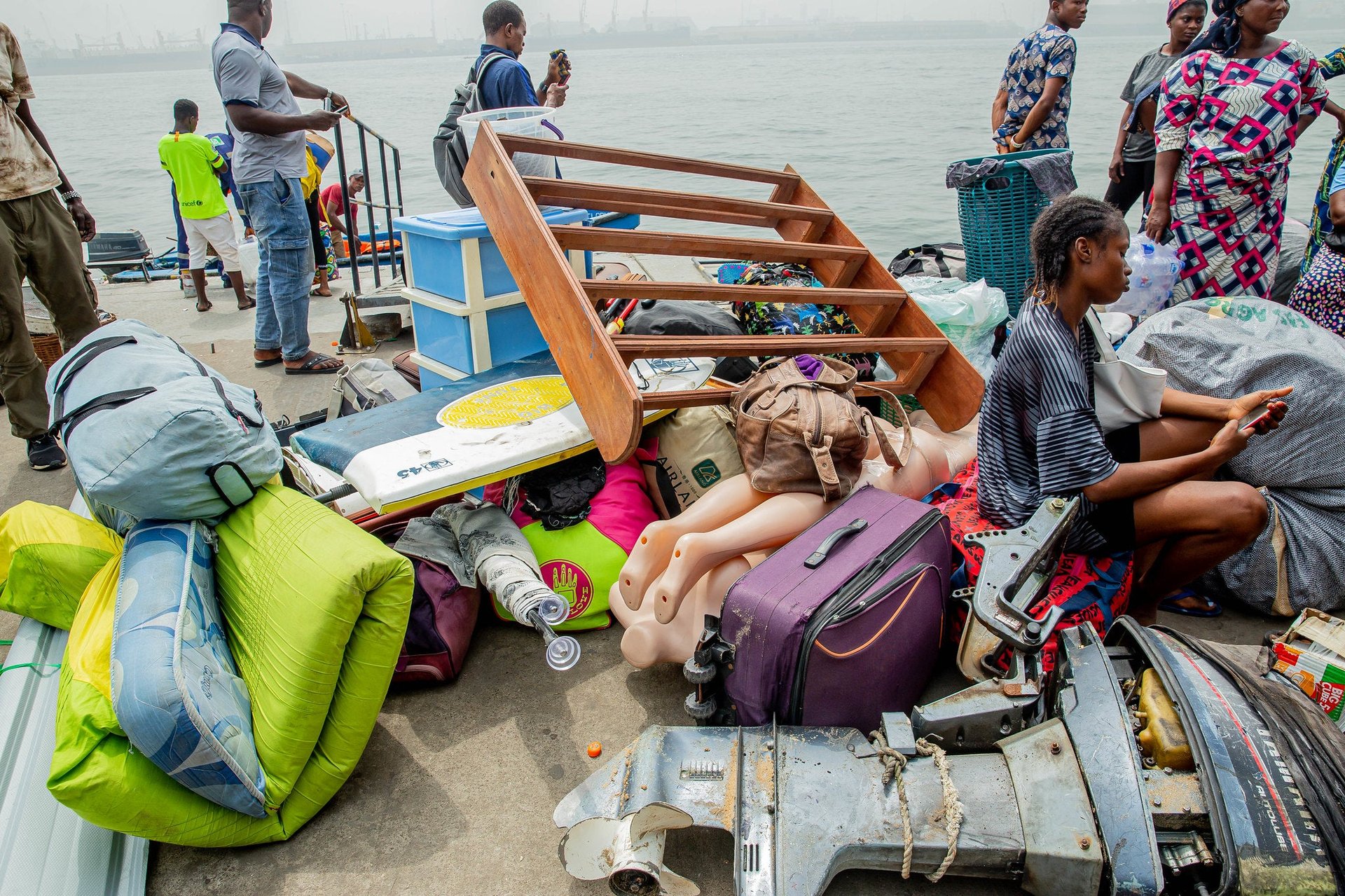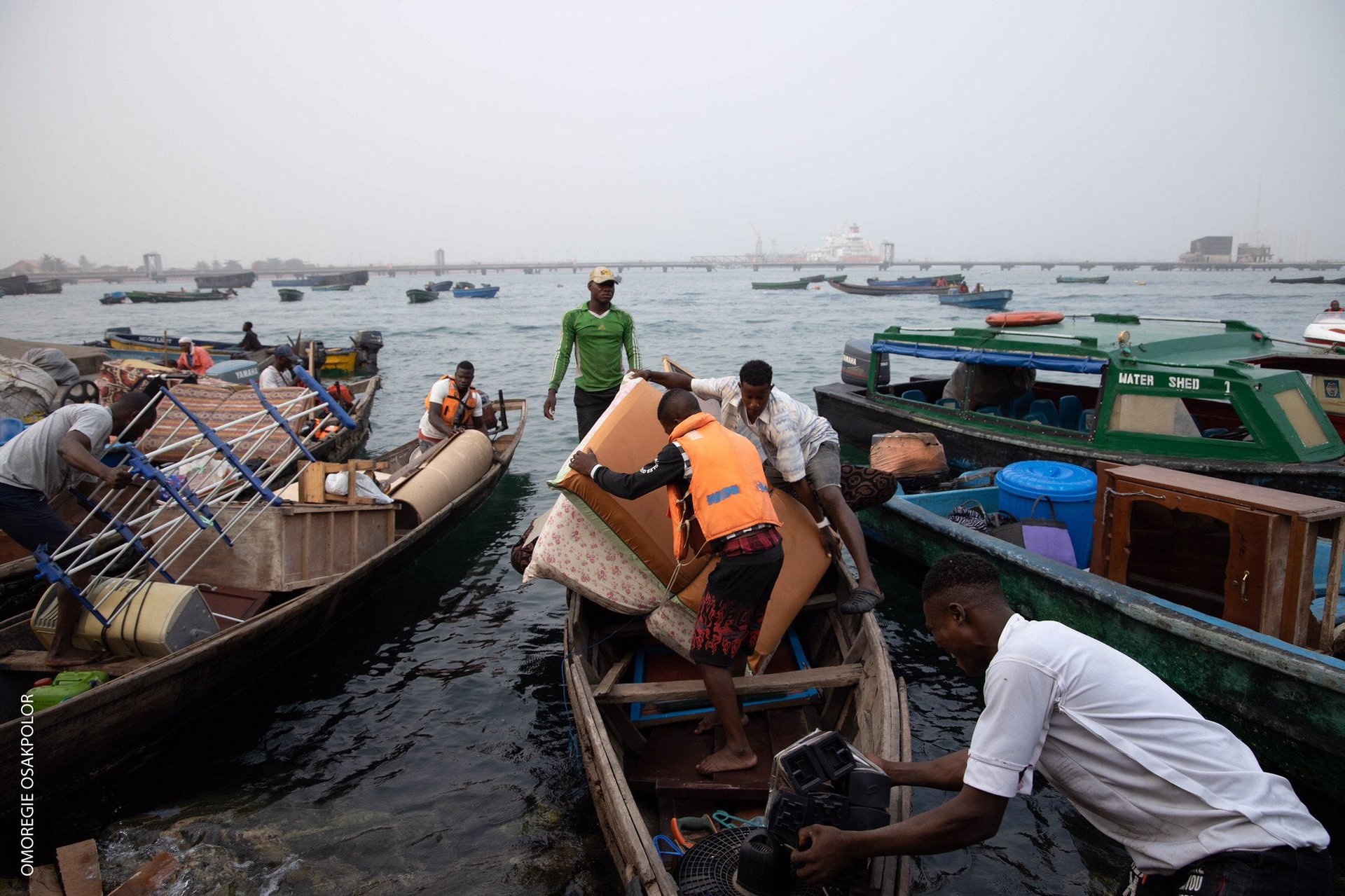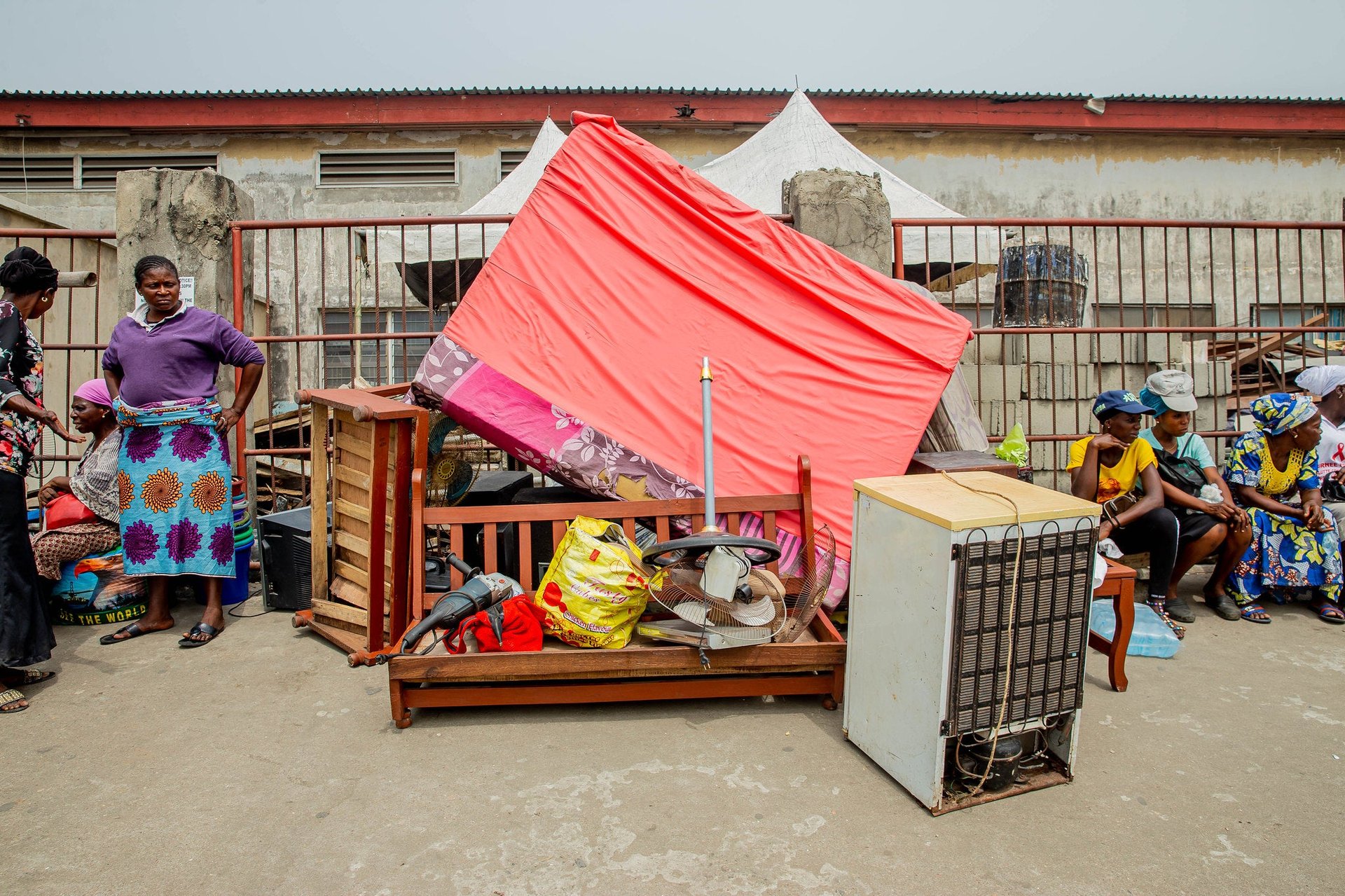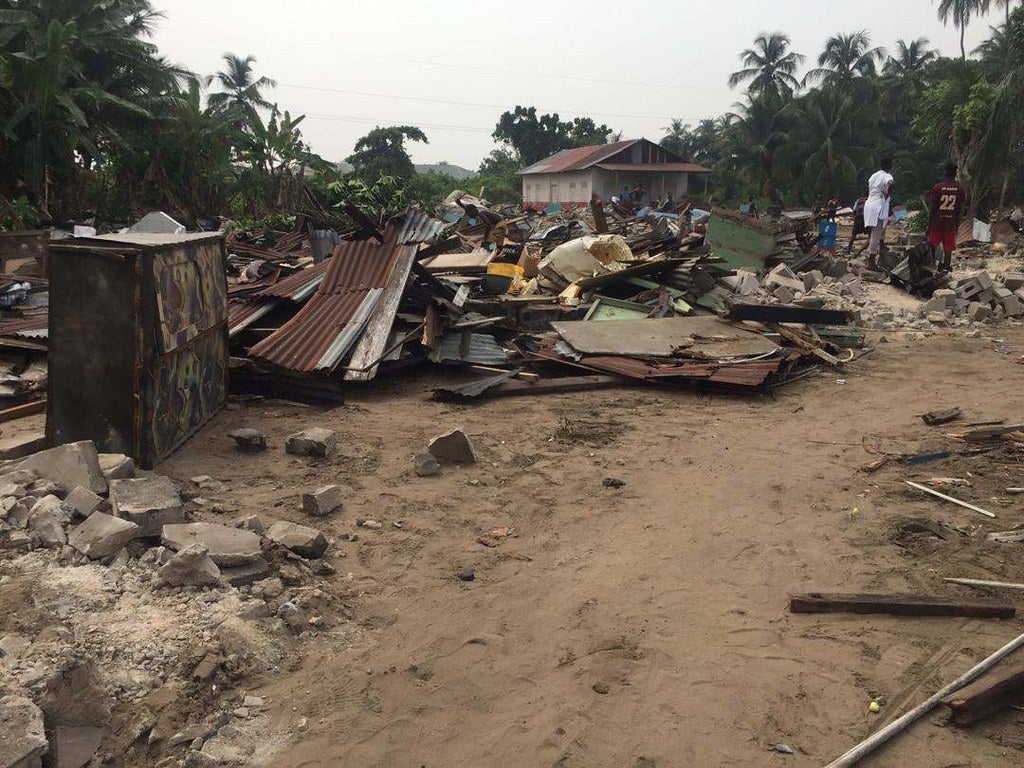Africa’s largest city has a habit of kicking out its poor to make room for the rich
A typical day on Tarkwa Bay, an island on the Lagos lagoon, sees dozens of tourists come in to visit its famous beaches while residents of a decades-old slum community that has mushroomed on the island go in the opposite direction, to mainland Lagos, for work. But on Tuesday, Jan. 21, the day started with gunfire instead.


A typical day on Tarkwa Bay, an island on the Lagos lagoon, sees dozens of tourists come in to visit its famous beaches while residents of a decades-old slum community that has mushroomed on the island go in the opposite direction, to mainland Lagos, for work. But on Tuesday, Jan. 21, the day started with gunfire instead.
Officers from the Nigerian Navy showed up and began forcefully evicting Tarkwa Bay residents while shooting sporadically in the air. The “order from above”, the officers said, was for the 4,500 residents to pack up their belongings and leave immediately. They were given only an hour to do so before demolitions began.
Tolulope Bradley, youth president of the Tarkwa Bay community, says there was no prior warning before the eviction. “We woke up and all of a sudden, we started hearing gun shots. A lot of people have just been rendered homeless.”
As it turns out, the Tarkwa Bay evictions have not happened in isolation. Since Dec. 2019 alone, at least two dozen slum and waterfront communities have faced eviction at the hands of government officials, says Justice and Empowerment Initiatives (JEI), a legal campaign group that works with the communities. The recent streak also follows a long history of evictions in Lagos and across Nigeria: over 2.3 million residents in Nigeria have been forcefully evicted from their homes by the government in the last twenty years, according to the Nigerian Slum/Informal Settlement Federation.
In a high-profile 2017 incident, the Lagos government kicked out 30,000 residents from Otodo Gbame, a waterfront slum, in a process that left at least 15 people dead. ”We keep seeing this lack of thoughtfulness and empathy on the part of the government,” says Dapo Awobeku, program officer with Enough is Enough Nigeria, a social advocacy organization. With the evictions often happening without compensation or plans for resettlement, there isn’t enough consideration for “what happens next” for evictees, Awobeku says.
The immediate consequences of forced evictions for the urban poor range from homes and properties being destroyed, social networks being irreparably damaged and families being split apart. With nowhere to go, Bradley says his children now live with a relative while he attempts to secure new accommodation.

Questionable motives
One often cited reason by the government for these evictions is insecurity. These communities, the government argues, provide cover for criminals given their inherent informal structure is difficult to police. In the case of Tarkwa Bay, the claim is oil pipelines on the island are often vandalized. But in this case many feel the heavy-handed penalty hardly matches the alleged offence. “You cannot use the claim of insecurity to justify the eviction of all the people on the island,” says Samuel Akinrolabu, a coordinator with the Nigerian Slum/Informal Settlement Federation.
It’s a stance that Andrew Maki, co-director of JEI, echoes: “There are thousands of people that lived in those communities, and if this was about security, what they should be doing is investigating and prosecuting people they believe to be guilty—that’s how criminal law works.”
Asides from insecurity, evictions also happen under the guise of concern for the safety of the community’s residents with the growing risk of climate change effects, rising water levels and poor sanitary conditions mentioned as threats. But even that notion is “problematic,” Maki says: “You don’t save someone by making them homeless.”

There’s another fairly obvious reason that likely drives these evictions though. Being Nigeria’s economic hub, Lagos is home to the country’s largest urban population despite being the smallest state by landmass. The city is now home to an estimated 21 million residents, many of whom arrive in search of better economic opportunities. But high rent costs mean affordable housing is out reach of many and slum communities have popped up, often on beaches. But, as the scramble for valuable land continues, waterfront slums now represent lucrative opportunities.
“As people are trying to acquire more land, it requires displacing others but they’re not going to displace the wealthy—they will target people that are vulnerable,” Maki says.
Distrust of the government’s motives is fueled by previous events. In July 1990, Maroko, a settlement of 300,000 mostly low-income earners bordering the wealthy Victoria Island, was demolished by the government without any provisions for resettlement. Three decades later, the area is now home to Lekki, one of Nigeria’s most pricey upmarket neighborhoods. Demolishing slum settlements to make room for real estate projects is “not new,” Akinrolabu explains. “We know one of the reasons for all this is land grab. At the end of the day what we’re going to see on this island are massive real estate developments,” he says.
Jostling for justice
Given the long history of evictions in Lagos and the likelihood they will continue, other slum communities are at risk. Indeed, when slum demolitions happen, the evictees usually end up spreading to other similar communities. As such, achieving a semblance of resolution “requires a certain level of willingness on the part of government to engage with poor people in a collaborative manner to solve this problem,” Maki says. For its part, the NGO JEI is looking to work with government agencies to make “realistic proposals for solutions.”
In the meantime, Tarkwa Bay residents have obtained a court injunction to stop further demolitions and evictions. But recent history suggests that respite is unlikely to be as immediate as they hope. Three months after the Otodo Gbame evictions in April 2017, a Lagos high court ruled the demolitions were unlawful and ordered the Lagos government to make resettlement plans for the community. However, those discussions have been deadlocked following the government’s appeal of the court’s ruling. The next hearing for the government’s appeal is currently scheduled for June 2021—more than four years after the evictions happened.

There are no indications of a change of tack from the Lagos government yet despite its mega-city ambitions often coming at the expense of the poor. An example is the Eko Atlantic project, a 3.9 sq. mile city being built on land reclaimed from the Atlantic Ocean. While the new city will house corporate headquarters and luxury residential apartments, experts suggest a sea wall wrapped around it to protect it from the ocean’s storms will leave other parts of Lagos even more susceptible to floods.
Earlier this week, the Lagos government also banned commercial motorcycles and tricycles—by far the most effective methods of transport for middle-class and low-income earners—from operating across most of the city as they don’t fit into its mega-city designs. The inability to balance aspirations for the future and problems of the present is not exclusive to Lagos. Across Africa, governments, in concert with private developers, are spending billions of dollars building sprawling new “smart” cities that appear disconnected from local socioeconomic realities.
Yet, the evictions and demolitions in Lagos will likely prove counter-productive as it triggers an unending cycle of poverty that will become increasingly harder to erase. “Displacing poor people or slums does not get rid of them,” Maki says. “What making people homeless does is forcing them even deeper into poverty.”
Sign up to the Quartz Africa Weekly Brief here for news and analysis on African business, tech and innovation in your inbox